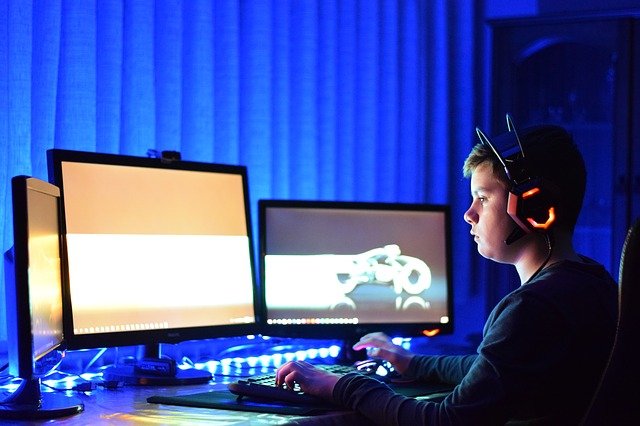The COVID-19 pandemic has changed many aspects of our lives from how we game to how we work and learn. Lockdown restrictions have made it almost impossible not to spend time on a digital screen of some sort. Mental Health effects of screen use in children during the pandemic has become a concern.
Public health safety measures resulting in school closures have led to a drastic change in social interactions and learning environments. These types of changes can pose a risk to the mental health of children and adolescents. Children were forced into situations where they had to quickly adapt without the time to prepare themselves. This may have led to a sense of acute stress that they were not equipped to handle.
Studies before the onset of the COVID-19 pandemic established a relationship between screen time and symptoms of mental health concerns. As schools switched to remote learning, the increased time in front of screens was significant. This, combined with the stress caused by the sudden changes contributed to the decline in many children’s mental health.
Not All Screen Use Is Created Equal
There is a distinct difference between using technology as an educational tool and recreational use. Since the coronavirus outbreak began, schools worldwide have shifted classes to online. Video-based meeting platforms like Google Meet, Zoom, and Microsoft Teams have become popular options. These platforms have made it possible to continue education when attending school in person is not an option.
But leisurely screen use has also increased considerably throughout the COVID-19 pandemic. One study showed that about 25% of students engaged in prolonged screen use outside of school hours. Young people are spending increased amounts of time watching television, playing video games, and browsing social media.
While different types of screen time — like online classes — may be considered unthreatening to a child’s mental well-being, one study showed otherwise. Digital class meetings didn’t prove beneficial. In fact children who used video chat for school displayed higher levels of anxiety and depression.
Increased digital activities such as watching television and playing video games is also associated with symptoms of mental health disorders. Children aged five and younger showed symptoms of conduct disorder and attention-deficit/hyperactivity disorder (ADHD). Older children ages six to eighteen displayed symptoms of depression and anxiety when exposed to high levels of screen use.
Making Sure That Your Child Doesn’t Get Too Much Screen Time
As some city and state officials begin to lift COVID-19 restrictions, many children are still enrolled in online schooling. For those who need to continue with remote learning, there are ways to limit the negative effects of excessive screen use.
Given the unpredictable nature of the pandemic, some parents and caregivers can expect their children to remain in online schooling. To combat the negative effects, parents can help their children by prioritizing physical activity. Promoting a healthy use of electronics, and minimizing screen time outside of school hours is important.
For children who may have been negatively impacted by the effects of the pandemic, receiving mental health services is incredibly important. For children engaging in a lot of screen time and struggles to disengage, it might mean that there is something more going on. Are they coping with internal distress by focusing on screens? Are they struggling to process things happening in their environment?
Finding the right mental health treatment providers can help identify if underlying concerns are present. It can also give your child an opportunity to learn how to cope without using screens.
About The Camp Recovery Center
Since 1984, The Camp Recovery Center has been committed to providing clinically excellent residential treatment for adolescents and adults who are struggling with addictions and co-occurring mental health conditions. The campus is situated on 25 acres among the redwoods in Scotts Valley, California, providing a peaceful place of self-reflection that allows for the changes needed to achieve lasting recovery. Today, The Camp Recovery Center is nationally recognized, with treatment options expanding to include a partial hospitalization program and an intensive outpatient program. For more information, please visit www.camprecovery.com.







